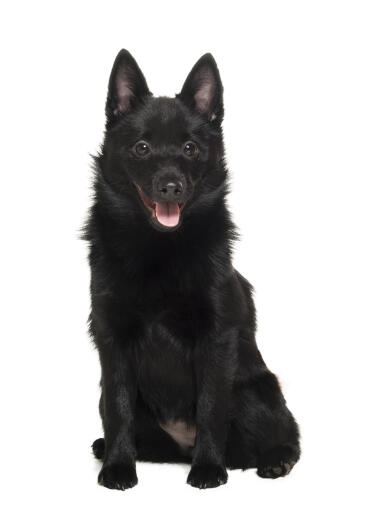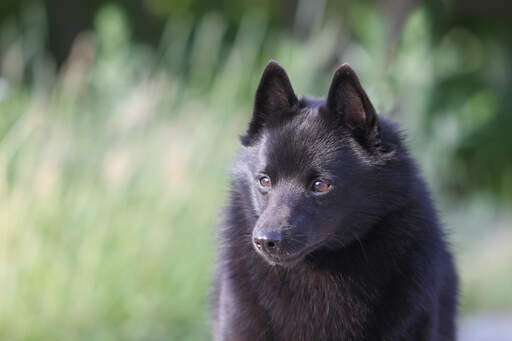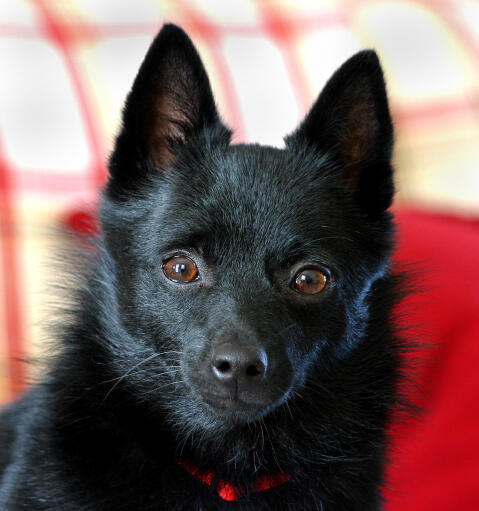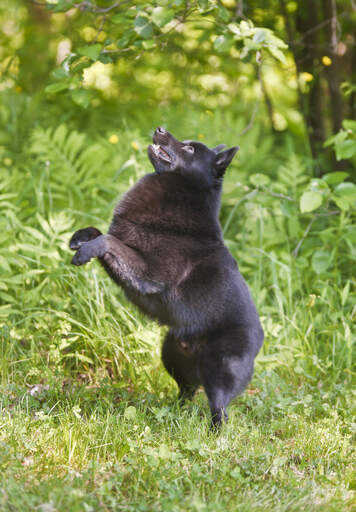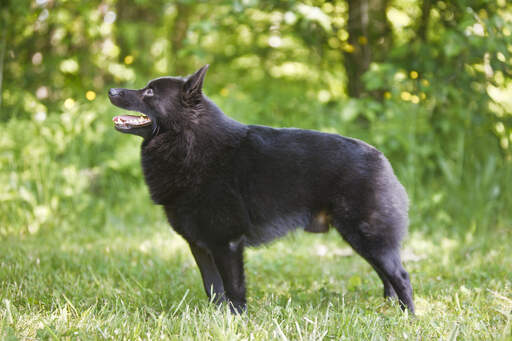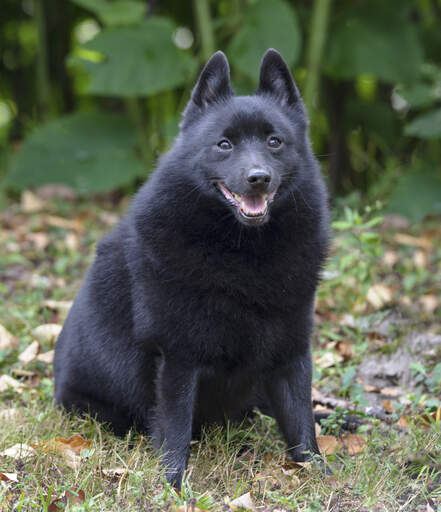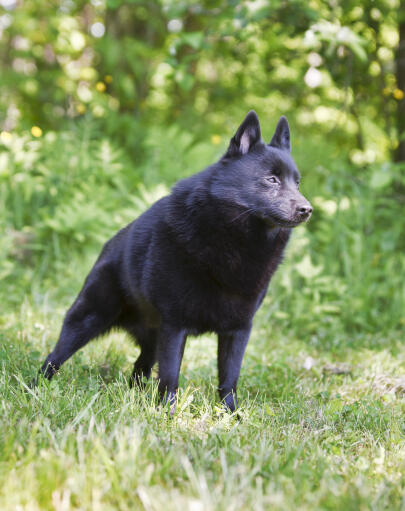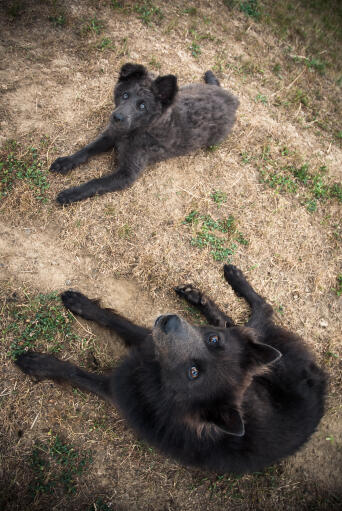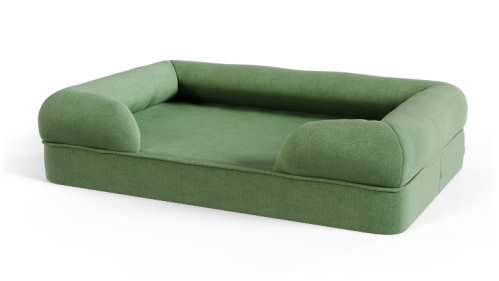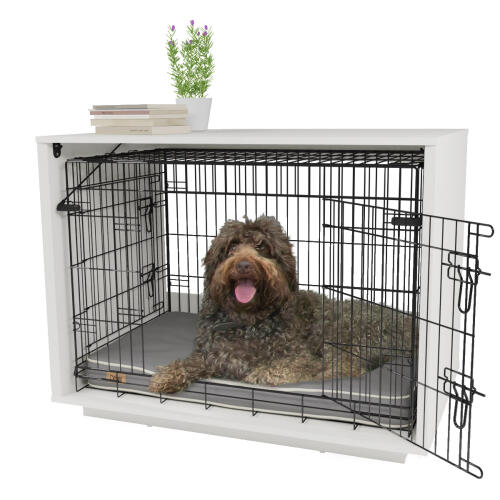Schipperke








Geschichte
The Schipperke dates back to the 16th century, but was only officially recognised in the 1880's. The name come from the Belgian word Schipper meaning shepherd and is translated as little Shepherd. The breed was often seen on barges and they are also therefore known as Belgian Barge Dogs, as they were fantastic at catching rats on the boats. The exact origin is unknown, with many believing they are a type of Spitz. They have been used as the foundation stock for the Belgian Groenendael.
Verhalten
The Schipperke is a lively, adventurous and wilful breed, that gets on very well with children, other pets and dogs if socialised correctly. They will bark when someone is at the door and have a tendency to howl if not taught correct behaviour from an early age. They bond closely to one owner, usually the main carer, so it is important to get the family involved in all training. They can become very protective of the home and surroundings so it is vital to take them to puppy classes and allow them to meet new people, places and situations to have a well rounded dog. They are reserved with strangers at first, until they feel relaxed and accept them. They like to be close to you and know what everyone is doing. They will want to take part in all aspects of family life and don't do too well being left alone for long periods.
Training should be started early, as they are intelligent and learn quickly. Praise and food reward works well and they soon learn new tricks and are very obedient if handled correctly. Training should be consistent and continue well into adulthood as they get bored easily and can become mischievous if they aren't occupied with something. Activities such as agility and obedience training work well and they seem to enjoy the close working relationship with their owner.
With high energy and a curious nature, Schipperkes need a fair amount of daily exercise. They may be a small dog, but they have boundless energy and will tear around a field if they get a scent and are renowned for chasing small animals. Recall may be a problem, so they are best walked in a secure area or on a long lead. They like to play with other dogs but forget their size and can sometimes suffer from small dog syndrome. Early socialisation should prevent this. Some are used as therapy dogs as they love human contact and are happy with the attention.
Their long black coat requires regular grooming, but they tend not to shed masses of hair. A regular brush will keep the coat looking good and they are quite clean dogs. When they moult it is sudden and masses of hair will fall out. They often look scruffy during their moult.
Health wise, they suffer few breed related issues, but Epilepsy and Canine Hip Dysplasia is seen. They have a tendency to gain weight easily, so food intake should be watched closely to prevent obesity.
Charakter
Schipperkes have an alert and agile temperament. These are quick little dogs who love to go on an adventure with you. They can be noisy at annoying times so it is important to start training them early so they can become reliable watchdogs. They are normally fine with all members of their own family but early socialisation is needed to prevent them being aggressive or timid as adults.
Gesundheitliche Probleme
Health problems that can affect Schipperkes include Legg–Calvé–Perthes disease (degeneration of the femoral head which can cause lameness and joint swelling), luxating patella (dislocation of the kneecap), canine hip dysplasia (CHD), elbow dysplasia, cataracts, progressive retinal atrophy (PRA: degeneration of the retina which can lead to blindness), allergies, hypothyroidism and lysosomal storage disease.
Einzelheiten zur Rasse
- Status: Common
- Lebenserwartung: 12 - 15 years
- Produktgewicht: 3 - 9 kg
- Höhe: 10 - 13"
- Selten: Nein
- Fell: Größe M - Zweifach
- Pflegeanforderungen: Einmal pro Woche
- Stadt oder Land: Beides
- Mindestanforderungen an Umgebung: Wohnung
- Mindestanforderungen an Garten: Kein Garten
- Rassetyp: Begleithund
- Version: Größe S
- Energieniveau: Hoch
- Benötigte Bewegung: Bis zu einer Stunde

